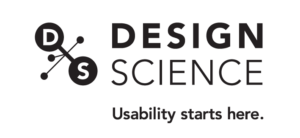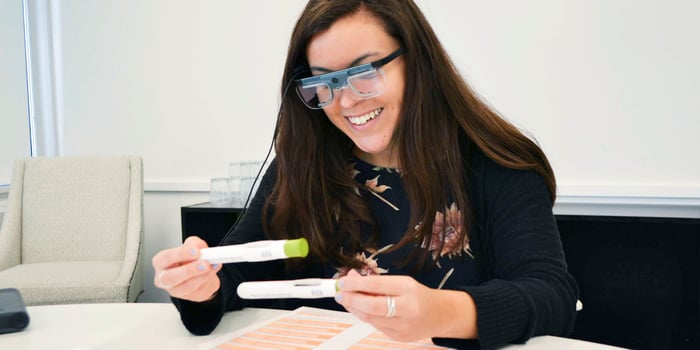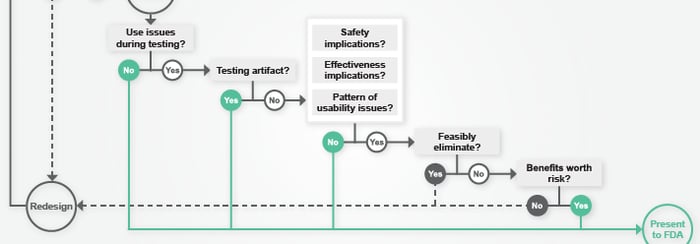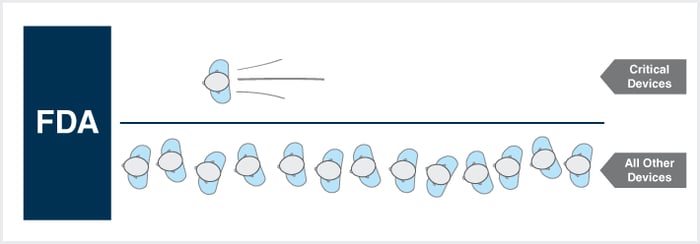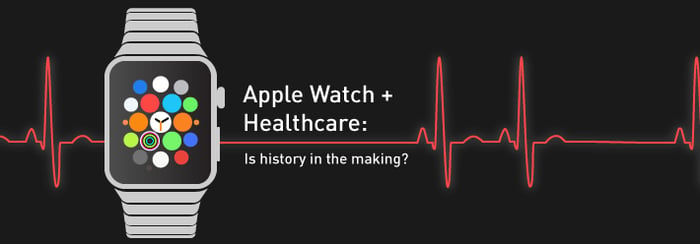Working on numerous eye tracking studies over the last two years, I feel I have gained the authority to say a word or two on eye tracking research. The research method is critical to our work at Design Science and has found itself to be ever more promising our clients and to us than ever before. Using eye tracking successfully in the field requires both a firm grasp on the theory and practical. Read more
medical product design
5 Tips for Your First Study in a Necropsy Lab
/ in tips , usability , cadaver , HF , human factors , medical product design , news / by Christina SWhy Use Cadavers? The study of human anatomy using cadavers dates back to roughly 300 BC, when the Greek physician Herophilus started to use dissection to understand human anatomy. Since then, cadavers have served as a major aid to education and research. For medical students learning anatomy and surgeons perfecting their instrument techniques, cadavers provide physical training materials. What's. Read more
MDO Article: The Value Of Eye-Tracking Software In Medical Device Usability Testing
/ in usability testing , eye tracking , human factors , MDO , meddeviceonline , medical product design , news / by Christina SWhen conducting usability testing, moderators rely heavily upon observations and interviews in order to evaluate medical devices. However, as Data & Systems Analyst Mahajabin Rahman points out in Design Science’s most recent article for MedDeviceOnline, the use of eye-tracking software can support these methods with objective, real-time data. Read more
MDO Article: Staying Dry: How To Limit Wet Injections In Auto-Injector Design
/ in usability testing , human factors , MDO , meddeviceonline , medical product design , news / by Christina SIn Design Science’s most recent guest column for MedDeviceOnline, Analyst Bryon Calawa examines the challenges that researchers face when evaluating auto-injectors in usability studies. Read more
MDO Article: “How To Know You've Passed Validation Testing (And What To Do If You Haven't)”
/ in usability testing , design science , FDA , human factors , MDO , meddeviceonline , medical product design , news , presentations / by Christina SUnderstanding the ramifications of less-than-perfect validation testing results can be complex. In his recent article for Med Device Online, Peter Sneeringer presents 6 questions to help companies decide if errors seen during testing indicate a likelihood that the FDA will reject their submission. Read more
FDA to Accept Applications for Expedited Medical Device Approval
/ in usability testing , user-centered design , design science , EAP , Expedited Access PMA , FDA , guidance , healthcare , human factors , industrial design , medical product design , news / by Christina SOn April 15th, the Food and Drug Administration will begin accepting applicants through its new Expedited Access Premarket Approval Application for Unmet Medical Needs for Life Threatening or Irreversibly Debilitating Diseases or Conditions (“Expedited Access PMA” or “EAP”). Read more
Now Hiring: Research Associates
/ in usability testing , user-centered design , career , design science , ethnographic research , healthcare , human factors , industrial design , job opportunity , medical product design , news / by Christina SAre you passionate about working collaboratively to make a felt difference in the world? At Design Science we have one mission - fitting products to people. Read more
Serious Medication Error Reminds Us of the Value of Testing
/ in human factors , information design , medical product design , news / by Design ScienceLast week, 15 Syrian children died after receiving measles vaccines. In what appears to have been a medication error, a muscle relaxant was used as the diluent to reconstitute the powder form of the measles vaccine, instead of the normal diluent (probably saline). Read more
Will Apple’s Watch Make Medical History?
/ in apple watch , industrial design , innovative technology , medical product design , news , wearables / by Design ScienceThe wearables market got a big jolt this past month with the release of Apple’s new Watch. It’s just called Watch, by the way, not iWatch—because that would be creepy. Read more
Feeling Good about Getting Well
/ in human factors , medical product design , news / by Design ScienceSitting cross-legged on the floor and staring at the textless Ikea instructions in my hands, I wonder how I'm supposed to assemble this entire desk using only an Allen key. I’m no carpenter–how can I possibly be doing this right? Read more
